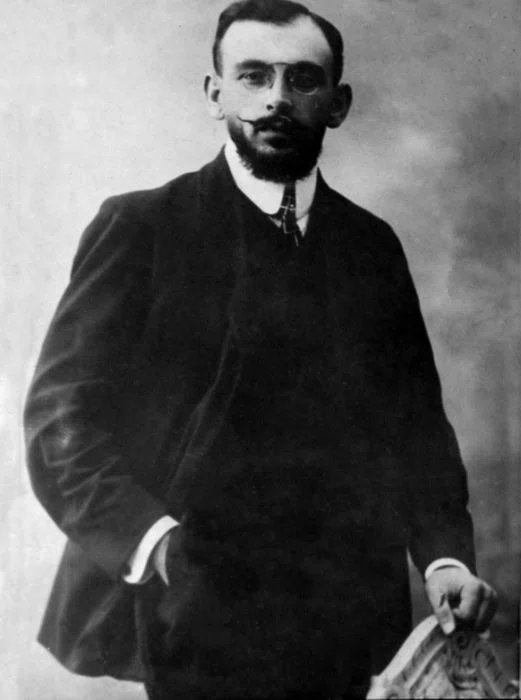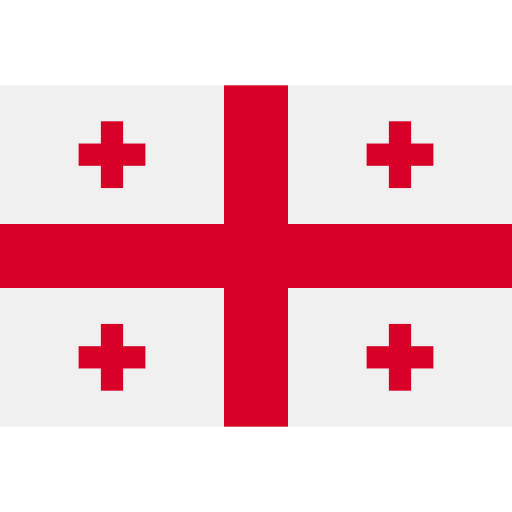
Mikheil Javakhishvili Museum: historical heritage in Georgia.
The Mikheil Yavakhishvili Museum offers an immersion into the life and work of the famous Georgian writer, revealing his contribution to the literary heritage.
The museum contains memorabilia, documents and photographs reflecting the life and work of the Georgian writer, journalist, public and political figure Mikheil Javakhishvili (1880-1937). The museum was founded in 1987. Mikheil Javakhishvili was educated at the University of Paris.
His first story, "Chanchura" (1903), was published in the newspaper "Tsnobis Purtseli" (Newsletter). He edited the newspaper "Iveria" (1904). A fighter against injustice, Mikheil Javakhishvili was persecuted both in Tsarist Russia and by the Soviet authorities. He was considered one of the founders of the Georgian realistic novel of the 20th century. He wrote such gems of Georgian prose as "White Collar", "Kurka's Wedding", "Kvachi Kvachantiradze", "Arsen from Marabda", "Dzhako's Migrants" and others.
British literary scholar Donald Rayfield compares the style, humor, hidden irony and moral pathos of Mikhail Javakhishvili with the qualities of Stendhal, Maupassant and Zola. Mikhail Javakhishvili translated the works of Guy de Maupassant, G. Sienkiewicz, A. Chekhov and others.
Mikhail Javakhishvili was one of the founders of the National Democratic Party of Georgia. In 1922-1924 he was a member of the Committee of Independence of Georgia and actively participated in the preparation of the 1924 uprising. Finally, in 1937, the Bolsheviks executed Mikhail Javakhishvili. He was accused of assisting the writer Grigol Robakidze in escaping to Germany and of openly supporting the characterization of Georgian writers contained in Andre Gide's book Retour de L'URSS. The death sentence for Mikhail Javakhishvili was actually passed by his colleagues – Georgian writers. On July 22, 1937, when the poet Paolo Iashvili committed suicide in protest in the building of the Writers' Union, the meeting of the Writers' Union adopted a resolution in which Paolo's act was assessed as an anti-Soviet provocation. Mikhail Javakhishvili was the only one who did not agree with this resolution. Four days later, on July 27, the presidium of the Writers' Union voted for the following decision: "Mikhail Javakhishvili, a spy and saboteur, is to be expelled from the Writers' Union."
Mikheil Javakhishvili (1880-1937) is an outstanding Georgian writer, poet, playwright, publicist, art historian, art critic, teacher, diplomat, and political figure. He was born in Tbilisi into the family of a noble Georgian industrialist and philanthropist. He was educated in Germany, France, and Switzerland, where he studied art and literature, as well as philosophy and political economy. Javakhishvili began his literary career in the early 1920s, when Georgia began a period of cultural flourishing known as the "Silver Age." He was one of the founders of a new literary movement in Georgia called the "literature of destruction." In his works, he critically assessed old traditions and customs, exposed social problems, and advocated for social justice. One of Javakhishvili's most famous works is the novel "Andegrenok," which was published in 1928. In it, the author describes the life of the Georgian intelligentsia during the period of Tsarist Russia and the first years of Soviet power. The novel caused heated debates in literary circles and was called the "book of the year". It is considered one of the most striking works of Georgian literature of the 20th century.
Javakhishvili was also known as a playwright. His plays, including "Alternatives" and "Untitled Play", were very popular and were staged on many theater stages in Georgia and abroad. He also wrote several film scripts.
In addition, Javakhishvili was known as an art critic and art historian. He studied Georgian folk culture and its influence on Georgian literature. In 1904, Mikheil Javakhishvili published his first book "Tales and Legends of the Georgian People", in which he collected many folk tales and legends that had previously been an oral folk heritage. However, in addition to studying folk culture, Mikheil Javakhishvili was also a writer and playwright. His works often covered themes of Georgian history and culture, as well as traditional rites and customs. He also wrote about how people perceive historical events and influenced the formation of Georgian national identity.
One of Mikheil Javakhishvili's most famous works is "Aragvi Valley", written in 1911. This novel describes the life of the Georgian people during the period of feudal dependence and the struggle for freedom. The book was very popular among Georgian readers and became a classic of Georgian literature.
Mikheil Javakhishvili was also one of the founders of the Shota Rustaveli Theater in Tbilisi, which was established in 1921. He wrote several plays for this theater, including "Shavlanda", which became one of the most popular plays in the history of Georgian theater. However, in 1937, Mikheil Javakhishvili was arrested as part of Stalin's purges and accused of counter-revolutionary activities. He was sentenced to death and executed the same year. In the following years, his works were banned and his name became taboo in the Soviet Union.
However, after Stalin's death, Mikheil Javakhishvili was rehabilitated and his works began to be published again. His novel "Dzhanishvili" was published in 1912 and immediately became popular among readers. It describes the life of the Georgian provincial nobility, their traditions, problems and relationships.
In 1917, Javakhishvili was elected to the Georgian National Academy of Sciences, and in 1920 he became its president. He also held the posts of professor at the Georgian University, director of the National Library and editor-in-chief of the scientific journal "Mtsereli". However, after the Bolsheviks came to power in 1921, Javakhishvili found himself in danger because of his nationalist views. In 1923, he was forced to leave Georgia and go to France, where he continued his scientific work. During his time in exile, Javakhishvili continued to work on the study of Georgian folk culture and its connections with other cultures. He also actively participated in the life of the Georgian exile, organized cultural events and wrote for Georgian magazines and newspapers.
However, his life was cut short in 1937, when he was arrested by the NKVD in Paris on suspicion of nationalist activities. The following year, he was executed in the USSR, although his family did not know his fate for a long time.
In Georgia, the name of Mikheil Javakhishvili remains one of the most revered and respected. His scientific and literary works had a great influence on the development of Georgian culture and art. On the site of his birthplace in the city of Telavi, there is a museum dedicated to his life and work.
The House-Museum of Mikheil Javakhishvili is a cultural and heritage monument dedicated to the outstanding Georgian writer, publicist, historian and philosopher, Mikheil Javakhishvili. The museum was founded in 1963, is located in Tbilisi and occupies the building in which the writer lived and worked. The Mikheil Javakhishvili House Museum is not just a place where you can see exhibits related to the life and work of the writer, it is a whole museum complex that includes several halls, a library, a cinema and an exhibition hall.
The museum displays Mikheil Javakhishvili's personal belongings, such as his books, furniture, photographs, family documents and letters. In addition, the museum features models of his house, which help visitors better understand what the life of Mikheil Javakhishvili and his family looked like.
One of the most interesting halls is the hall dedicated to the writer's literary work. Here you can see original manuscripts, first editions of his works, as well as translations into different languages.
In addition, the museum library contains a rich collection of books, including books in foreign languages, which Mikheil Javakhishvili used in his works. Much attention is also paid to the history and culture of Georgia, which were the main themes in the writer's work. The museum displays many books and documents related to the history of Georgia, as well as national clothes, jewelry, carpets and other household items that demonstrate the traditions and customs of the Georgian people.
In addition to the permanent exhibitions, the Mikheil Javakhishvili House Museum regularly hosts various cultural events, such as lectures, concerts, exhibitions and theatrical performances. These events attract not only literature lovers, but also the general public who are interested in the culture and history of Georgia.
One of the most popular events held at the Mikheil Javakhishvili House Museum is the literary festival dedicated to the writer’s memory. It is held annually in July and brings together writers, critics, literary agents and simply literature lovers from all over Georgia and from other countries.
In addition, the Mikheil Javakhishvili House Museum also hosts literature courses that allow participants to get to know the writer’s work more deeply and learn how to write their own works. These courses are very popular among young people who dream of becoming writers.
The house-museum of Mikheil Javakhishvili also attracts the attention of tourists who are interested in the culture and history of Georgia. It is one of the most visited museums in Tbilisi, and many tourists come here to learn more about the life and work of the outstanding Georgian writer.
The peculiarity of the house-museum of Mikheil Javakhishvili is its unique interior. Inside the house, original interior items used by the writer and his family have been preserved. Here you can see original furniture, art galleries, antique clocks, photographs and other attributes that create the atmosphere of a house of the early 20th century.
The house-museum of Mikheil Javakhishvili is not only a place to get acquainted with the writer's work, but also a venue for various cultural events, such as lectures, concerts, book presentations and exhibitions. This allows preserving the cultural heritage of Mikheil Javakhishvili and attracting new fans of his work.
One of the most interesting events held in the house-museum of Mikheil Javakhishvili is "Evenings at Javakhishvili's". This is a monthly event, within the framework of which the museum hosts lectures, concerts and other events dedicated to the life and work of the writer. At these evenings, you can not only enjoy the cultural program, but also meet other fans of Mikheil Javakhishvili's work.
In addition, the house-museum of Mikheil Javakhishvili offers excursions for both individual visitors and organized groups. The excursions are conducted by qualified guides who tell about the life and work of the writer, as well as about the cultural and historical features of Georgia.
Undoubtedly, the house-museum of Mikheil Javakhishvili is an important cultural site not only for Georgia, but also for the whole world. After all, this place not only preserves and transmits the legacy of an outstanding writer, but also helps people understand and feel the cultural and historical traditions of Georgia.
--------------------------
We will be glad to know your opinion about the article and answer your questions! Leave your comments under the article, we will be happy to read them.












31 comments
Log in to leave a comment